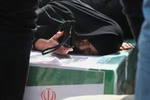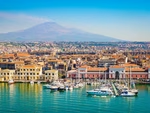
The intention of the main Bosniak party to challenge the name of the Serb-majority part of the country, Republika Srpska (RS), at the Constitutional Court because it allegedly discriminates against non-Serbs living there has prompted threats with Serb secession, Russian diplomatic reaction and a public discussion about the true nature of the move.
The Party for Democratic Action (SDA) said on Wednesday that it will ask the Constitutional Court whether the name ‘Republika Srpska’ is in line with the Constitution, saying that the name does not take into account the fact that Bosniaks and Croats also live there.
The Bosnian Serb member of the country’s tripartite Presidency, Milorad Dodik, announced that if the initiative enters the Court, he will initiate a vote on a decision on the independence of the semi-autonomous entity in the RS National Assembly.
The move also prompted Russia, which is backing Bosnian Serb efforts for years, to call for an urgent meeting of the Peace Implementation Council (PIC), an international community body overseeing the implementation of the 1995 Dayton Peace Agreement, which ended the war.
Bosnia’s international administrator, High Representative Valentin Inzko, called the SDA initiative “irresponsible and counterproductive.”
“This is an alarming development, coming at the time when the government is being formed and I have to say that the turmoil it has created will somewhat paralyse Bosnia’s political scene,” political science professor Mirko Pejanovic told N1 on Thursday.
He welcomed Inzko's reaction and said he hoped the PIC meeting will prevent the SDA from submitting te case to the court.
But according to House of Peoples MP Miro Lazovic, this and other discriminating elements in the constitution would have to be dealt with sooner or later.
He said he believes that some foreign diplomats were behind the decision to initiate this move which the SDA has been announcing for some time already.
Bosnia’s Constitution is packed with all kinds of discrimination and on its path toward EU membership the country will have to eliminate them as it harmonises its laws with those of the EU, he said.
“I realise that the announced appel is at this moment perhaps politically questionable and that it could produce certain political implications,” Lazovic said.
“But the appellation was (previously) announced and would have been submitted today, tomorrow or in one year. Bosnia and Herzegovina is expected to erase all discriminatory elements for its Constitution,” he explained.
If Republika Srpska refuses to implement the court ruling, it could become an “isolated island” which international actors will avoid because Europe is based on the rule of law, he said.
The SDA initiative "has far-reaching legal consequences that can cause certain changes in the territory of Bosnia and Herzegovina,” Lazovic concluded.
Kakvo je tvoje mišljenje o ovome?
Učestvuj u diskusiji ili pročitaj komentare





 Srbija
Srbija
 Hrvatska
Hrvatska
 Slovenija
Slovenija



























































